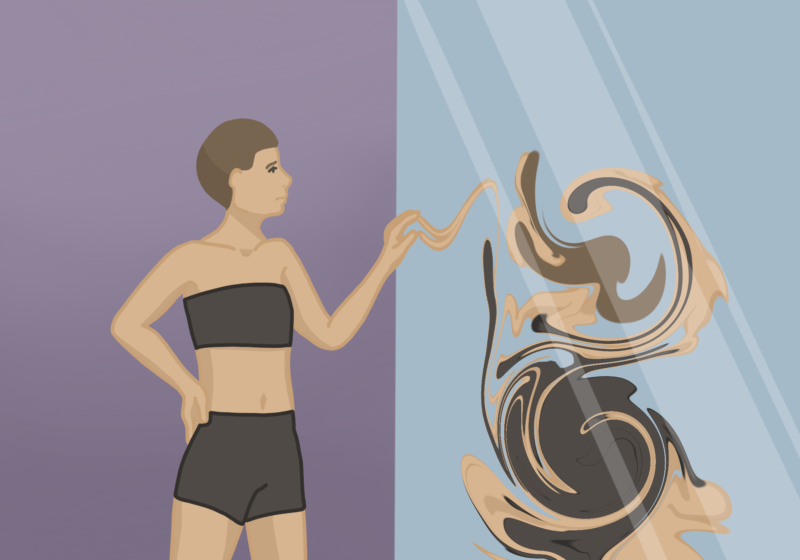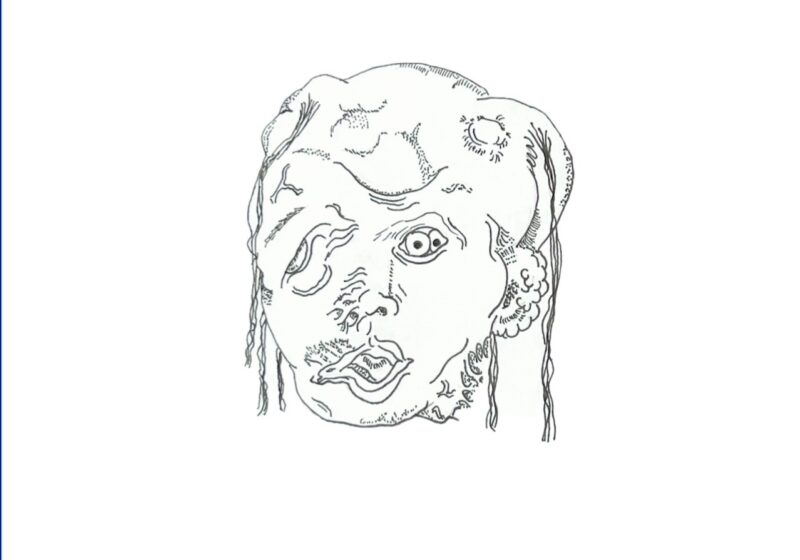As we’re all pretty well aware, social media is fake. Of course, we know that we’re only seeing one tiny sliver of someone’s life. People only showcase their best moments — why would they do anything else? But beyond this aspect, a lot of the actual photos are straight-up fake. Celebrities are airbrushed; some lie about their plastic surgery. Many Photoshop their faces and bodies to look exactly how they want. There are countless ways to pose to change their bodies.
TikTok is not immune to these things. It may be harder to use Photoshop when it’s a video, but people find ways around it with different angles, lighting, and posing. This is not to say that they themselves don’t look good — it’s just that this isn’t how they look all the time. We can’t hold ourselves to that high of a standard when we see ourselves so often.
But beyond the unrealistic standards that social media propagates, TikTok heavily promotes eating disorder culture, and unhealthy attitudes about food and weight in general. Despite the changes to TikTok where searching terms like “thinspo” — short for “thin inspiration”, or even “proana”, short for “pro-anorexia”, which often promoted being thin and often underweight through unhealthy and harmful methods — now lead straight to the National Eating Disorder Association helpline, TikTok still propagates tons of thinspo-esque content. A lot of what I see on TikTok is tagged “#fitspo” or “#fittok”, with both hashtags having billions of views. During the early days of quarantine especially, a lot of my For You page was focused on excessive dieting and over-exercising.
TikTok circulates a lot of content glorifying unhealthy habits. “What I eat in a day” videos often show minute food portions. Also, the meals are often mostly vegetables with some protein but very little carbohydrates. A lot of these same creators also promote over-exercising. While exercising is healthy when done right, over-exerting your body can be detrimental and is a component of some eating disorders. When someone is exercising a lot, they need to eat more to fuel their body, but these creators are often eating (or at least advertising eating) less than they should while pushing their bodies beyond the limit. What’s more, there are also damaging narratives TikTok promotes like trying to get your “summer body.” We need to realize that every body is a “summer body.” You don’t have to be thin to wear shorts, rock a bikini, or go to the beach.
People who haven’t had eating disorders might not know that they are inherently competitive. Basically, people who struggle with eating disorders tend to think that they aren’t “sick enough.” If they encounter other people with eating disorders, they constantly compare themselves. Thus, it’s important to avoid sharing things that could be triggering and cause a relapse. However, not everyone shares this mentality. I think it’s good to be transparent about the process, but it’s also okay to censor some things. Creators need to avoid posting videos or pictures with body checking, obsessive weighing, or calorie counting. This type of content simply isn’t helpful for anyone. If someone feels like they need to lose weight, they should discuss it with their doctor and make a personalized plan. Don’t listen to strangers on TikTok who don’t know you or your body.
Unfortunately, it’s challenging to escape from this content. The algorithm on TikTok is impressively — and perhaps alarmingly — accurate. If you interact with a video once, similar videos will continue to come up on your For You page. Interacting can be liking the video, commenting, sharing, following the creator, or even letting the video play multiple times. Once you’ve done this, it’s hard to escape from these videos. The best thing to do is to hold down and click “not interested” when one of these videos pops up.
I’ve learned a lot from my own struggle with an eating disorder. During my treatment, the most striking thing my nutritionist said to me was, “You don’t have to love your body.” I thought she was joking. It seemed like a trap. But she’s absolutely right. What she meant is that it’s not realistic to love your body all the time. There are going to be moments when you don’t like something about yourself, and that’s okay. No one thinks every part of themselves is perfect. Self-love isn’t always realistic; self-acceptance is much better. The goal should be to take yourself as what you are. Aim for acceptance to start, and get to love later.





